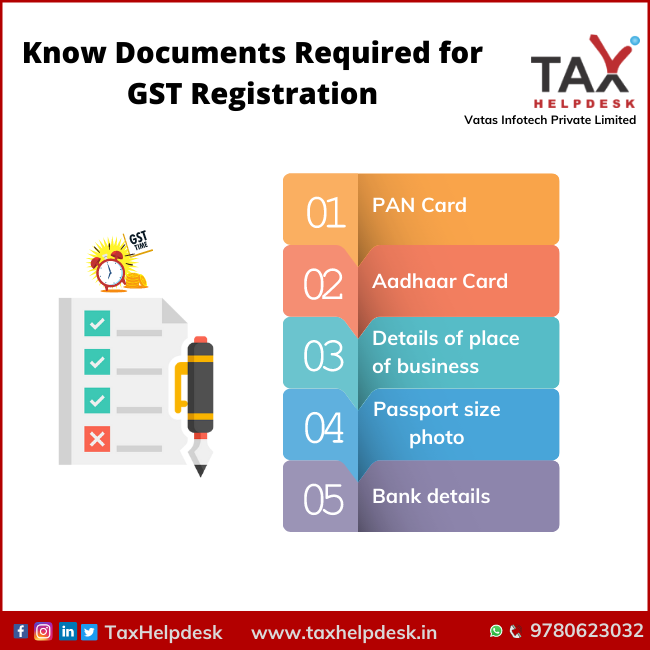Vital Overview to Singapore GST Registration for New Businesses
The Ultimate Overview to Streamlining the GST Enrollment Process and Demands for Small Company Owners

Comprehending GST Basics
To realize the basics of the Goods and Services Tax Obligation (GST) system, little organization proprietors must first recognize its underlying concepts and effects. Under the GST regime, services are required to register and gather tax on part of the federal government, making certain openness and compliance.
Among the essential principles of GST is input tax credit history, which permits companies to assert debt for tax obligations paid on their purchases. This mechanism protects against the cascading result of tax obligations and promotes efficiency in the tax system. Furthermore, GST is a destination-based tax obligation, implying that the tax is levied at the point of usage rather than the point of beginning. This ensures fair distribution of tax obligation profits amongst states based upon where the services or goods are taken in. Understanding these fundamental concepts is critical for local business proprietors to navigate the complexities of the GST system and guarantee compliance with the regulation.
Eligibility Standards for Registration
Having actually developed a foundational understanding of GST concepts, small company proprietors have to currently meet details eligibility criteria to wage the enrollment process. In India, entities participated in the supply of goods or services with a yearly aggregate turn over surpassing Rs. 40 lakhs (Rs. 10 lakhs for unique group states) are called for to sign up for GST. Furthermore, certain organizations such as those involved in inter-state supply of products, informal taxed individuals, and those needed to pay tax obligation under the reverse cost device must sign up for GST irrespective of their turn over. Services that were registered under the previous tax obligation regimen (VAT, service tax obligation, etc) are also mandated to register under GST. Nevertheless, farming organizations that only provide produce out of primary production are excluded from GST registration. It is critical for local business owner to thoroughly examine their eligibility based on these requirements to make certain conformity with the legislation and prevent any penalties for non-compliance.
Documents Required for GST Enrollment

Simplified Enrollment Process Actions
Adhering to the collection and confirmation of the requisite records, the enrollment procedure for GST can be navigated through a our website series of simplified steps created to facilitate efficient compliance for little business proprietors. Upon successful confirmation, an Application Referral Number (ARN) is provided, showing the completion of the GST registration process. By complying with these streamlined actions, little organization owners can efficiently sign up for GST and make certain conformity with tax laws.
Tips for Ensuring Compliance
To keep regulative adherence and operational stability, diligent oversight and proactive actions are critical in making certain compliance with GST needs for small company proprietors. Little business proprietors should stay upgraded with GST regulations, submitting due dates, and any kind of modifications in tax rates to stay clear of penalties and maintain a great standing with tax obligation authorities. Going to GST awareness workshops or training programs can enhance understanding and conformity with GST policies, eventually profiting the organization in the long run.
Final Thought
Finally, local business owners must recognize the fundamentals of GST, meet the qualification requirements, gather needed files, and adhere to the simplified enrollment process actions to make sure compliance. By streamlining the GST enrollment process and needs, small company proprietors can stay clear of penalties and operate their services smoothly within the legal structure - Singapore GST Registration. It is vital for small service owners to stay certified and enlightened with GST guidelines to keep an effective company procedure
Tiny company proprietors seeking GST enrollment need to guarantee they gather and send the needed files to complete the registration procedure efficiently. The records needed for GST enrollment commonly include evidence of company registration or consolidation, PAN (Long-term Account Number) card of the organization entity, her explanation address and identity evidence of the promoters/partners/directors, photos, address evidence of the location of company, bank account statements or terminated cheques, and consent kinds. Participating in GST awareness workshops or training programs can improve understanding and compliance with GST guidelines, inevitably profiting the organization in the long run.
By streamlining the GST registration procedure and requirements, little organization owners can prevent charges and operate their businesses smoothly within the legal structure. It is essential for tiny organization owners to remain certified and informed with GST laws to preserve an effective organization go to these guys operation.